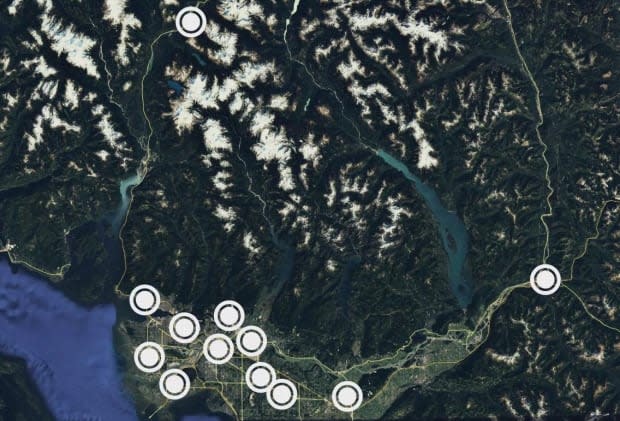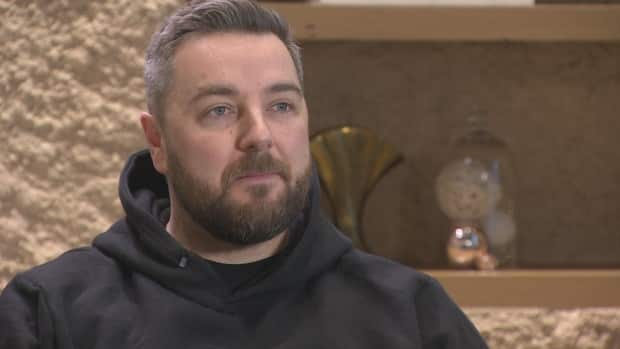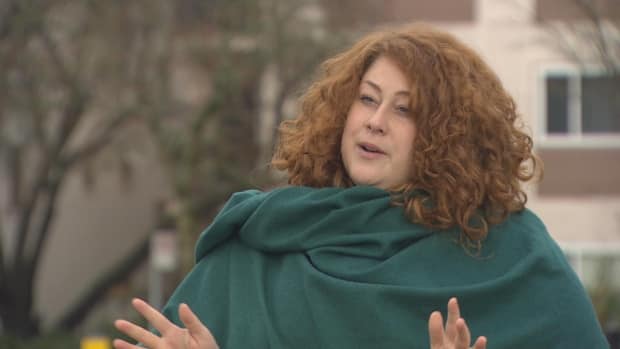B.C.'s cannabis access desert: 12 municipalities on South Coast lack local, legal weed
Across a large swath of B.C.'s South Coast, there lies an area cannabis industry insiders have dubbed an access desert. It's a group of municipalities that — two years after legalization — still doesn't have legal cannabis retailers within its boundaries.
Twelve municipalities — Whistler, West Vancouver, Delta, Burnaby, Coquitlam, Pitt Meadows, Surrey, the Township of Langley, the District of Langley, Abbotsford and Hope —still don't offerlocalaccess to legal cannabis, according to the provincial government.
Many in the industry say it's a problem that helps the illicit market thrive.
In B.C., municipalities have the power to refuse to sell cannabis within their borders.

The so-called access desert is frustrating to many in the industry, like the team at Burb, a cannabis brand with three storefronts in Port Coquitlam and Port Moody.
"From a business standpoint, economically, it's impacting us," said CFO and co-founder Steven Dowsley, adding that his company is constantly running into closed doors with municipalities that lack the cannabis retail infrastructure.
Whileoperators in the industrycan advocate to the different municipalities as often as they want, Dowsley says it comes down to each council's priorities and whether retail cannabis is even on the docket of files to tackle.
But business aside, Dowsley says the whole point of legalization — to ensure that a safe, tested product is available to the public and that the illicit market's share diminishes — is being undermined by lack of access and prohibition.
"I think a city is doing itself a disservice, not just for the city itself, but for the constituents not having safe access to a product," he said.
Jaclynn Pehota, the executive director of the Association of Canadian Cannabis Retailers, agrees that prohibitions against legal cannabis inadvertently drive consumers to the illegal market.
"Cannabis is being sold in those jurisdictions. That is the truth of the matter. Whether or not that access is regulated or not, doesn't stop the activity from happening," she said.

Almost 64 per cent of cannabis users in B.C. in 2019 said they acquired their cannabis from legal stories, according to Stats Canada.
"It is going quite swimmingly in the unregulated market," said Pehota.
Those living in communities without local access can order cannabis products online from the provincial stores. However, the black market also takes a large chunk of the market share.
It's coming, in some municipalities
CBC News reached out to the 12 municipalitieswithout local access.
Delta, Whistler, Pitt Meadows and Burnaby did not respond.
Coquitlam, Hope, the Township of Langley and Langley City said they were in varying stages of introducing the framework needed to permit retail cannabis. The City of Abbotsford has already approved four applications.
Richmond, Surrey, and West Vancouver have prohibitions on cannabis sales.
West Vancouver says it will review retail applications on a case-by-case basis, while Surrey said applicants may submit for rezoning.
Richmond stood firm.
"Council decided that a prohibition of retail is in the best interests of the community, especially with the availability of cannabis products elsewhere across Metro Vancouver," it wrote in a statement.
Burden with no benefit
Pehota regularly advocates to municipalities in favour of retail cannabis and, she says, generally, the cause of that reluctance can either be attributed to those who would prefer to wait and see how it goes in neighbouring jurisdictions and those who decline to engage in the cannabis industry due to its stigma.
"There's still kind of the giggle factor," she said, adding that the industry still isn't taken seriously.

"No matter what you think of cannabis as a consumer good, you have to recognize that it represents a huge economic block of activity that we need to capture. It's about tax revenue."
But surely the draw of school building, pot-hole-fixing tax revenue would be enough to entice a municipality into adopting this emerging industry?
Not so, says Pehota, who pointed out that the provincial government doesn't share a single cent of the tax revenue from cannabis sales with the municipalities.
Yet, it's the municipalities that bear the brunt of the work — administration, application-review, community consultation, the drafting of new bylaws.
"It's not really the best way to motivate people to participate," she said.
In a statement, the Ministry of Public Safety and Solicitor General said ministry staff is continuing discussions with the Union of B.C. Municipalities about revenue sharing. However, it's a discussion that's been ongoing — and a request that's been repeated by municipalities — since before legalization.
CBC Vancouver's Impact Team investigates and reports on stories that impact people in their local community and strives to hold individuals, institutions and organizations to account. If you have a story for us, email impact@cbc.ca.


